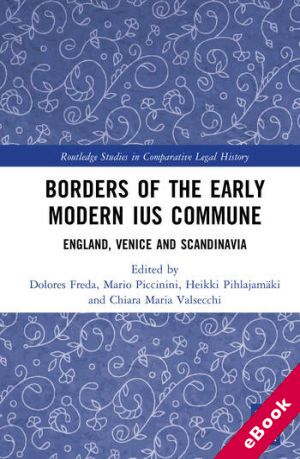
The device(s) you use to access the eBook content must be authorized with an Adobe ID before you download the product otherwise it will fail to register correctly.
For further information see https://www.wildy.com/ebook-formats
Once the order is confirmed an automated e-mail will be sent to you to allow you to download the eBook.
All eBooks are supplied firm sale and cannot be returned. If you believe there is a fault with your eBook then contact us on ebooks@wildy.com and we will help in resolving the issue. This does not affect your statutory rights.
The culture of the ius commune has been a unifying element of European and Western legal civilization. As shown by several recent studies, the influence of ius commune extended much further than its traditional core area. This volume discusses the expansion and changes of ius commune in three significant corners of Europe, which in the classical narrative either totally or partially were left out of the picture: England, Scandinavia, and Venice. The study goes beyond the traditional question of the influence of ius commune in comparing the different constellations of normativity and legal pluralism in these regions. It investigates how not only ius commune but also other forms of normativity – such as customary law, written norms, and legal practice – were used and applied, and how they circulated. The approach helps create new narratives as to how the relationship between centers and peripheries in Europe evolved in the early modern period. These new narratives are built from bottom to top; thus, based on concrete source information, and focusing on the learned legal systems and their connection to the local legal sources. The collection further looks into the circulation of professors and doctors, students, and legal texts, starting from the idea that a theoretical understanding of the forms of normativity can only emerge through concrete, multidisciplinary research recognizing the tensions between global legal unification and differentiation. The book will be essential reading for researchers and academics in Legal History, Law and Religion, Comparative Legal Studies and Early Modern History.